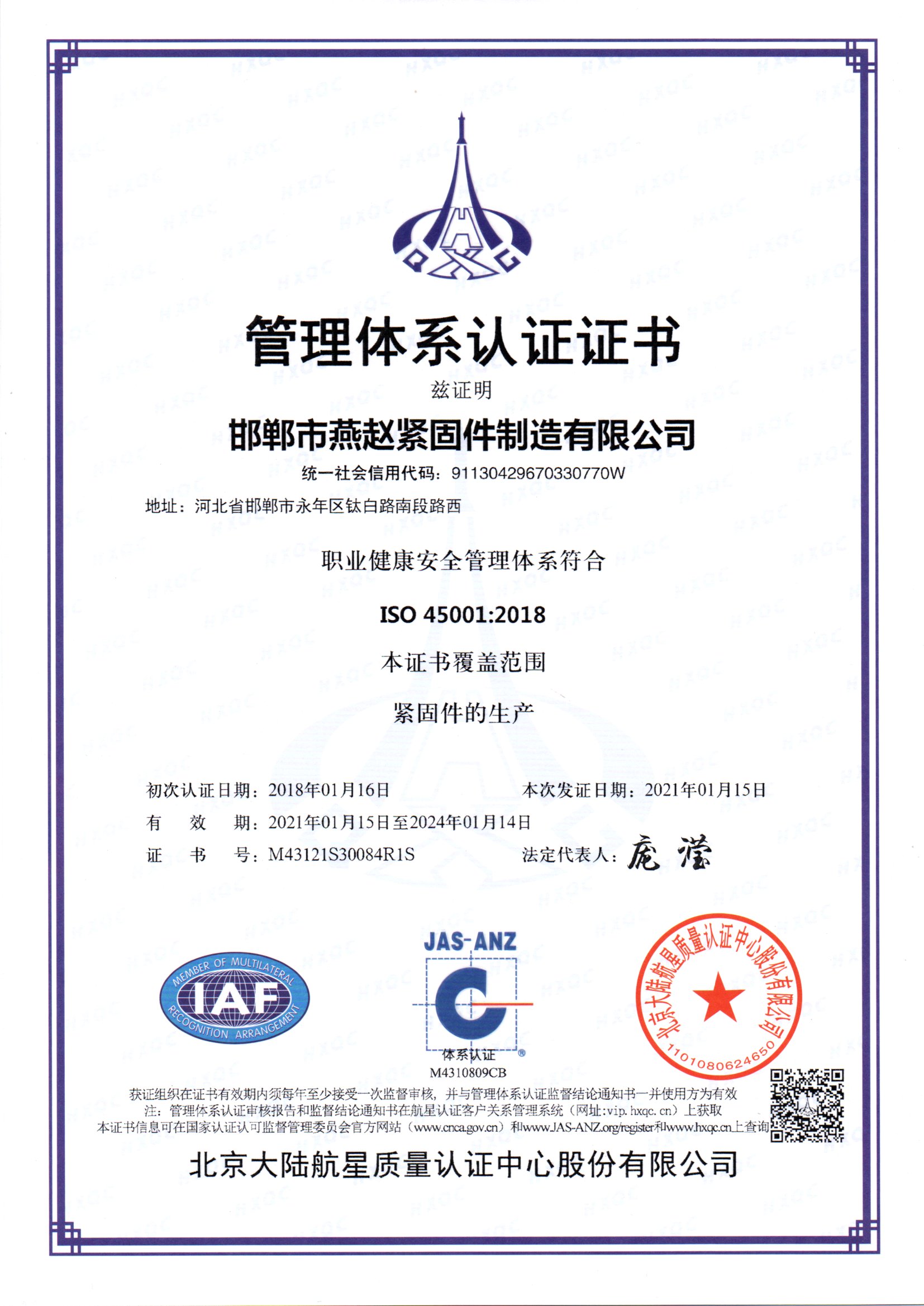Exporting ASME B18.2.1 Compliant Stud Bolts for Industrial Applications and Standards
ഒക്ട് . 31, 2024 18:59 Back to list
Exporting ASME B18.2.1 Compliant Stud Bolts for Industrial Applications and Standards
The Importance of ASME B18.2.1 Stud Bolts and Their Exportation
In the world of fasteners, stud bolts play a critical role in ensuring the integrity and reliability of various structures and machinery. Governed by the American Society of Mechanical Engineers (ASME), the ASME B18.2.1 standard outlines the specifications for stud bolts, detailing dimensions, material requirements, and mechanical properties necessary for high-performance applications. This standard is crucial for manufacturers, suppliers, and exporters who aim to provide quality fasteners to industries ranging from construction to automotive.
Understanding ASME B18.2.1
ASME B18.2.1 specifies the dimensional tolerances and mechanical properties of stud bolts, which are essential components used to connect two or more objects securely. Unlike conventional bolts, stud bolts are characterized by their double-ended thread design, making them ideal for applications where high strength and reliability are paramount. The standard includes guidelines for various grades of materials, ensuring that the stud bolts can withstand different environmental conditions, load requirements, and stress factors.
The Global Demand for Stud Bolts
The manufacturing industry is increasingly dependent on standardized components, and the demand for ASME B18.2.1 compliant stud bolts has risen significantly on a global scale. Industries such as oil and gas, shipbuilding, and large-scale construction projects rely on these fasteners for their strength and durability. As companies across the globe strive to adhere to rigorous safety and quality standards, the exportation of stud bolts that meet ASME specifications has become a lucrative market.
asme b18 2.1 stud bolt exporter

Challenges in Exporting Stud Bolts
However, exporting ASME B18.2.1 stud bolts is not without challenges. The complexities of international trade, including varying regulatory standards, material certifications, and quality assurance processes, can pose significant hurdles for exporters. Understanding the specific requirements of different countries is vital to ensure compliance and prevent potential legal or financial repercussions. Additionally, fluctuations in raw material costs, logistical challenges, and geopolitical factors can affect pricing and availability, making it essential for exporters to adopt flexible and strategic approaches.
The Role of Quality Assurance
To succeed in the export market, manufacturers must prioritize quality assurance and adhere to the specifications laid out in ASME B18.2.1. Implementing rigorous testing procedures and ensuring that all products meet both domestic and international standards can help build trust and reliability with buyers. Establishing robust quality control systems, including certifications from recognized testing agencies, can significantly enhance a manufacturer's reputation in the global market.
Conclusion
In summary, ASME B18.2.1 stud bolts are fundamental components that play a vital role in various industries. The growing global demand for reliable and high-quality fasteners presents significant opportunities for exporters. However, navigating the complexities of international trade requires careful planning, adherence to quality standards, and a deep understanding of market dynamics. By focusing on these areas, manufacturers and exporters can successfully meet the needs of the market while ensuring the integrity and safety of their products. With a commitment to quality and compliance with ASME standards, the future of stud bolt exportation looks promising, opening avenues for growth and innovation in the fastener industry.
Latest news
-
Reliable Axle Nuts Supplier | Quality & Precision Fasteners
NewsAug.23,2025
-
Durable Bolts for Lawn Mower Handle - Top Supplier & Manufacturer
NewsAug.22,2025
-
High-Quality Bolts for Lawn Mower Handle Supplier & Manufacturer
NewsAug.21,2025
-
Reliable Axle Nuts Supplier | High-Quality Automotive Parts
NewsAug.19,2025
-
Premium Wire Bolts Suppliers | Durable & Reliable Fasteners
NewsAug.18,2025
-
Leading Metric Wood Screw Companies & Manufacturers
NewsAug.17,2025
